Topics:
Never Miss a Beat - Get Updates Direct to Your Inbox
FILTER:
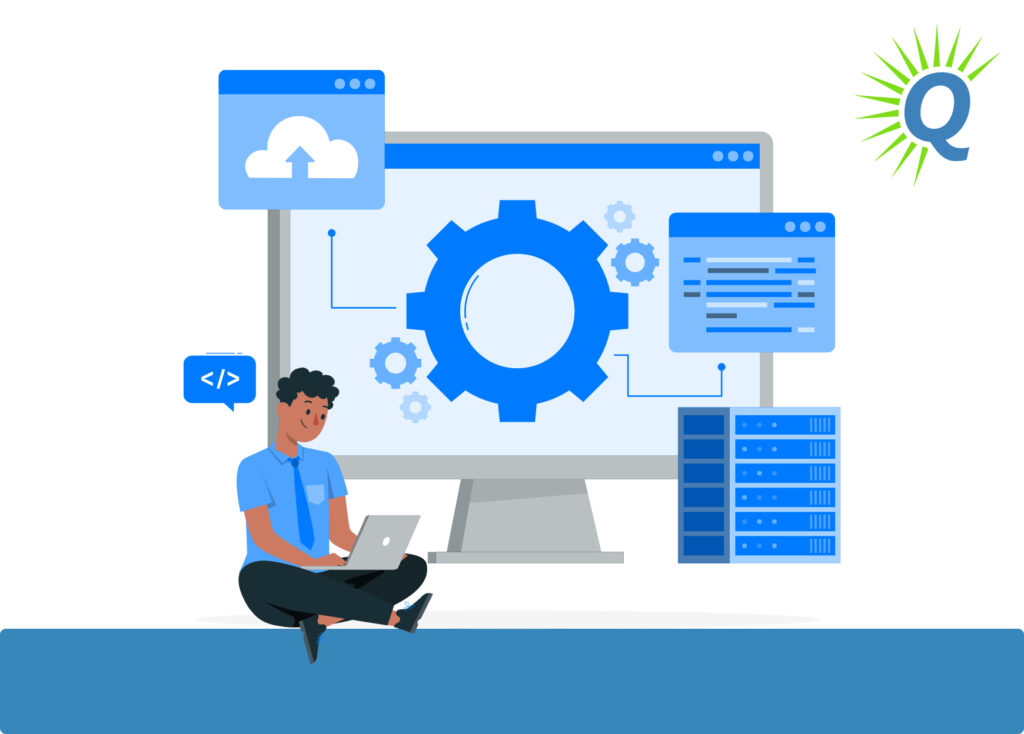

Should You Buy or Build a SaaS Business? Here Are The Pros and Cons of Each
By Quiet Light
If you’re thinking of venturing into the world of software entrepreneurship, you must ask yourself a key question: Should you buy or build a SaaS business?
There are many benefits to purchasing an established SaaS business, making it no surprise they’re in high demand among savvy investors. However, there are also some advantages of building a SaaS company from the ground up.
In this article, we cover:
- The pros and cons of both buying and building a SaaS business
- Eight questions to help you answer the “buy or build” question for yourself
- How to evaluate a SaaS business for sale and avoid common acquisition pitfalls
- The tools you’ll need to build a profitable SaaS business
Related Articles:
Your Guide to Finding SaaS Businesses For Sale
5 Tips for Scaling a SaaS Business


Weighing the pros and cons of building versus buying a SaaS business
The first step in making the decision to buy or build a SaaS business is understanding the pros and cons of each option. Once you’re aware of the advantages and risks, you’ll be equipped to make an informed decision that takes your goals, resources, and preferences into account.
Maybe you’re looking for a business with an established customer base. Or perhaps you crave creativity and customization. Either way, your list will help you weigh the benefits and drawbacks of each approach.
“The first step in making the decision to buy or build a SaaS business is understanding the pros and cons of each option.”
What you’ll love about investing in an established SaaS business
For the right entrepreneur, there are many benefits of buying an existing SaaS business. These include measurable financial benefits, but also intangible lifestyle benefits.
You’ll save time and energy while reducing your risk
Compared to starting a business from scratch, purchasing a business can save you time, energy, and risk. You’d be joining many business owners who get their start by purchasing a SaaS business instead of starting their own.
When a business is in the baby stage, it often requires a significant investment of your time and energy. To top it off, every new business starts off with a significant risk of failure.
Acquiring an existing SaaS business means gaining access to a pre-built customer base. This can provide immediate revenue streams and reduce the time and effort you would spend building a customer network from scratch. If you choose a business that has streamlined operations, you can also minimize the time and energy investment needed to successfully run a business.
You have a proven SaaS concept from day one
An existing SaaS business has already demonstrated its viability in the market. It’s already gone through the product-market fit phase and refined its offering based on customer feedback. That reduces the risk associated with launching a new venture and increases the chances of your business success.
Buying a business has lifestyle benefits, too
There are many professional benefits that come from owning a business. But buying a business also allows you to reach your lifestyle goals. Purchasing a SaaS business can be fun and exciting. And nothing beats the feeling of personal satisfaction of spending your working hours running a business that aligns with your interests and passions.
You can run an online business from anywhere. So whether you’ve always dreamed of working from the beach or jetsetting with your family on a moment’s notice because you set your own work schedule, owning a business opens up a world of exciting possibilities.
With the right planning, you can have more control over your schedule and be closer to attaining that work/life balance you’re dreaming of.
“An existing SaaS business has already demonstrated its viability in the market.”
The drawbacks of buying a SaaS business
While purchasing a SaaS business comes with a great list of advantages, you can’t ignore the drawbacks. Here are some disadvantages you might encounter during the buying process:
Higher upfront investment
Acquiring an established business usually requires a significant upfront investment. The purchase price may include the value of the existing customer base, technology, intellectual property, and other assets.
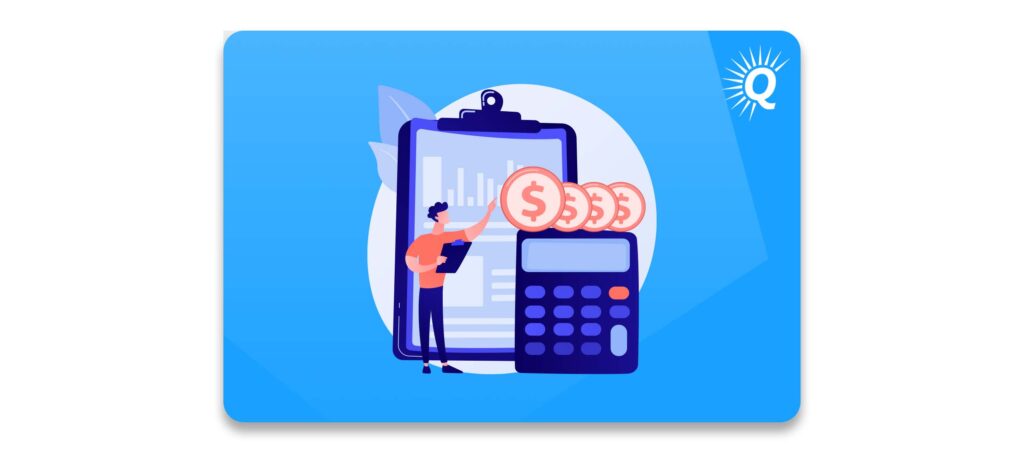

Challenges with integration
Integrating a newly acquired business into an existing organization can present challenges. It might require aligning different processes, systems, and cultures, which can be time consuming and complex.
Juggling legacy issues
An existing SaaS business might have legacy systems, technical debt, or outdated code that needs to be rewritten. These issues can create obstacles in terms of scalability, maintenance, and future development.
The upsides of building your own SaaS business from the ground up
There’s something exhilarating about a fresh start. Starting a SaaS business from scratch offers many advantages, providing you with a unique opportunity to tap into a growing market while delivering innovative solutions to customers. Some of the advantages of building your SaaS business include:
Customization and control
Building a SaaS business from scratch allows you to have complete control over the product’s design, features, and technology stack. You get to tailor the solution to meet your specific needs and vision.
Agility and flexibility
Building a business offers the flexibility to adapt quickly to market changes and pivot your business strategy as needed. You can iterate on your product, experiment with different approaches, and respond to user feedback in real time.


The downsides of starting your SaaS business from scratch
While building a SaaS business provides you with significant advantages, it’s crucial to acknowledge the potential challenges and disadvantages associated with starting a company. Some of the pitfalls you might encounter while building the SaaS business of your dreams include:
Upfront time and resource investment
While it doesn’t require the same upfront cost as buying a business, building a SaaS business still requires time, effort, and resources. You’ll incur costs developing the product, building the infrastructure, establishing a customer base, and marketing your SaaS products. This can delay your time to market and increase your initial investment.
Market uncertainty
When starting a new business, there is a level of uncertainty regarding product-market fit and customer adoption. It takes time to validate your business model and gain traction in the market.
Skills and expertise gaps
Building a SaaS business requires a diverse skill set, including product development, marketing, sales, and customer support. If you lack expertise in any area, you need to hire or outsource talent, which can drive costs (and complexities!) up.
Ultimately, the decision between buying or building a SaaS business depends on various factors such as your budget, expertise, risk tolerance, time constraints, and the specific market conditions. Assessing these pros and cons in the context of your resources and goals will help you make an informed choice.
“Building a SaaS business requires a diverse skill set, including product development, marketing, sales, and customer support.”
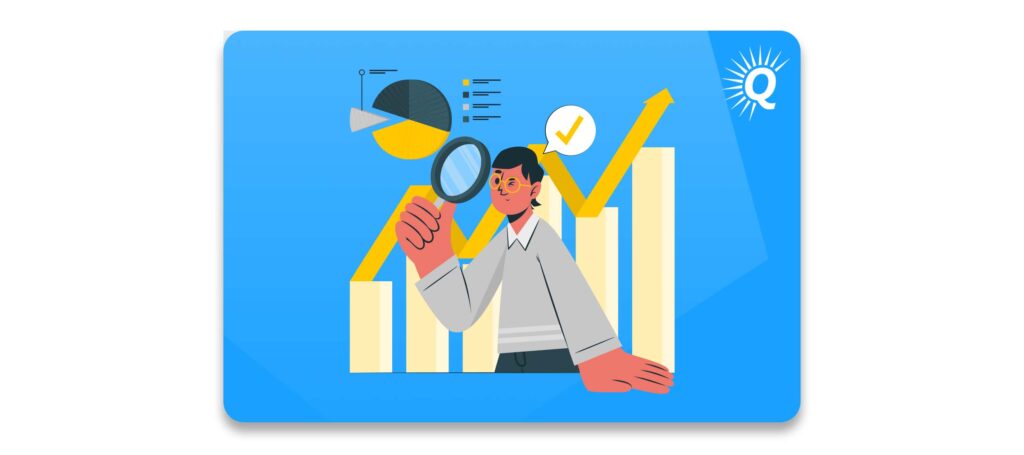

Answering the buy or build question for yourself
When you’re deciding between buying an existing business or building one from the ground up, there are several important questions you need to ask yourself. Each option has its own advantages and challenges, but at the end of the day, you will need to decide for yourself what is the best move for your personal and business goals.
Here are a few questions to consider when you’re thinking about whether you want to buy or build.
What does your budget look like?
Spend time evaluating the financial aspect of both buying and building. Buying an existing SaaS business may involve higher upfront costs. Common expenses will include the purchase price, legal fees, and other associated expenses. Meanwhile, starting a business from scratch allows you control of your initial investment. However, it may take longer to generate profits.
Do you have expertise with SaaS businesses?
Consider your own skills and experience in relation to the SaaS industry and the type of business you’re considering either buying or starting.
Buying an existing SaaS business can provide you with an established customer base, tried and tested SaaS product, experienced employees, and existing systems. On the other hand, building from scratch will require that you build everything from the ground up, which might require more time, effort, and practical experience.
How is the market doing?
Spend time assessing the current market conditions for the SaaS industry. Research growth rate potential, competition, and overall market trends. Buying an existing SaaS business can give you a head start because you’re purchasing an established market position. Starting a business allows you to adapt to the current market conditions and adjust your business goals accordingly.
Does brand recognition work in your favor?
When you’re looking at SaaS business listings, think about whether the reputation and established brand recognition is a pro or con for each situation. An established brand can save you time and effort in building brand awareness. But if the SaaS business you’re interested in purchasing is struggling and has a bad reputation, you’ll spend time and money re-establishing yourself and your company as an authority.
When you start a business, you’re in charge of shaping the brand image and establishing it exactly according to the vision that you have for your SaaS company. You’ll need to decide whether you want to create a brand or re-shape an existing brand. Alternatively, you can look for a pre-existing company with brand recognition and reputation that is golden from day one.
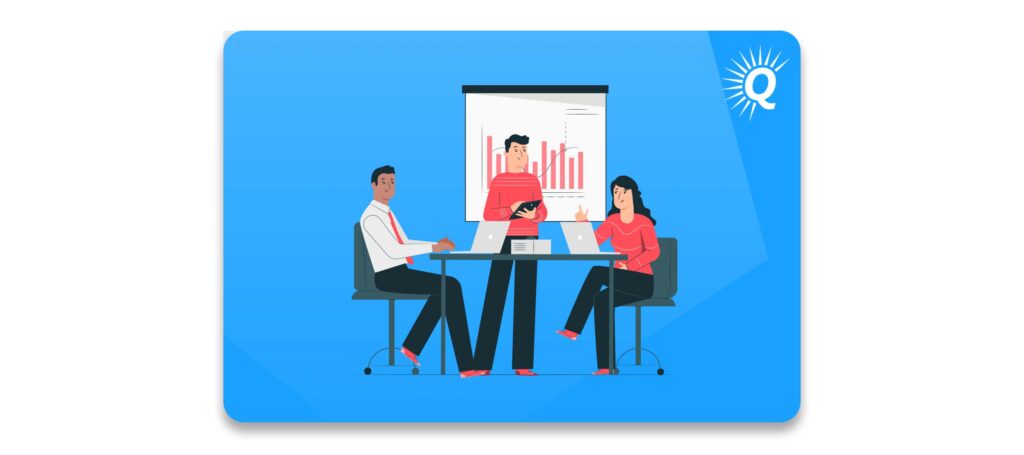

What are the risks associated with each option?
You can weigh general pros and cons all day. However, it’s not until you’re actually ready to get started buying or building an actual SaaS business that the rubber meets the road.
Buying a SaaS business comes with its own set of risks. These include hidden liabilities, outdated systems, or declining market demands. Starting a business from scratch involves the risk of uncertainty and a longer period of time before you start seeing a profit. It’s exciting to build a totally new SaaS app, but you’ll also take on the risk involved with launching a brand new product.
How much risk do you have tolerance for? Does your budget have a high or low margin for failure? How long can you wait before you see a profit? Define your risk tolerance and answer honestly when it comes to your ability to handle potential challenges.
“Buying a SaaS business comes with its own set of risks. These include hidden liabilities, outdated systems, or declining market demands.”
Would you define yourself as flexible and creative?
When you buy an established SaaS business, it will typically come with established structures, proven SaaS products, processes, and branding. If you’re an entrepreneur who thrives when given creative challenges, established systems and brand kits might limit your ability to make significant changes—at least right out of the gate. That isn’t to say that there isn’t room for creativity within an established business! From launching a new feature to redesigning your SaaS platform for a better customer experience, you’ll still have room to stretch your creative muscles.
But if you enjoy building software, SaaS development, and starting from ground zero when it comes to branding, a SaaS startup could be a great fit for your goals. Starting a business allows you to shape every aspect of the business according to your vision.


How much time do you have to dedicate to a SaaS business venture?
Determine the time and effort required for each option. If you’re buying a SaaS business, you might be able to pass the initial stages of setting up a business, which can save you both time and effort. If you don’t have a lot of time in your day-to-day schedule to dedicate to business operations, buying a business you can simply enter into can be a great option.
Meanwhile, if you have a large amount of time to dedicate to the process, building a SaaS startup could be a great fit. You’ll have the opportunity to build everything from SaaS software to customer communication according to your own preferences and that can be a rewarding process.
What are your personal and entrepreneurial goals?
How would you define your personal goals and your dreams as an entrepreneur? Buying an existing SaaS business might align with your desire for stability and a proven product track record. On the other hand, starting a business from scratch can provide the opportunity for greater personal fulfillment and the ability to build something unique.
Regardless of whether you decide to invest in a pre-existing SaaS business or build one from the ground up, it’s important to carefully evaluate these factors and spend some serious time researching before you make your decision.
Remember, you don’t have to sort through your list of questions alone! Seek advice from professionals such as lawyers, accountants, business consultants, and business brokers to ensure you’re making an informed choice that aligns with your goals, experience, and resources.
Outsmart the startup game and check out our listings. You can request a summary on any business without any further obligation.Buy a Profitable Online Business
How to decide which SaaS business is the right one for you
Deciding which SaaS business to purchase requires careful evaluation and analysis. Here are the key steps to help you make an informed decision if buying a business is what you choose to pursue:
- Defining your key criteria
- Doing market research
- Analyzing business finances
- Performing due diligence
- Analyzing customer analytics
- Assessing SaaS technology
- Seeking expert advice
Define the perfect SaaS business for you
Think about your total dream SaaS business—the one that if you saw it for sale, you’d move mountains to make that purchase happen. Have a list of the goals that you want to accomplish with the purchase of a SaaS business. Consider factors like industry focus, target audience, revenue, growth potential, technology stack, team size, and profitability.
When you have a list of what you want to see in a SaaS business that you invest in, you’ll be able to narrow down your options and focus on businesses that align with your goals and dreams.
Get to know the state of the SaaS market
Spend some serious time conducting market research to get a grasp of the current landscape and trends in the SaaS industry. Identify current market demands, who your competition is, and where there’s room for growth in the SaaS market.
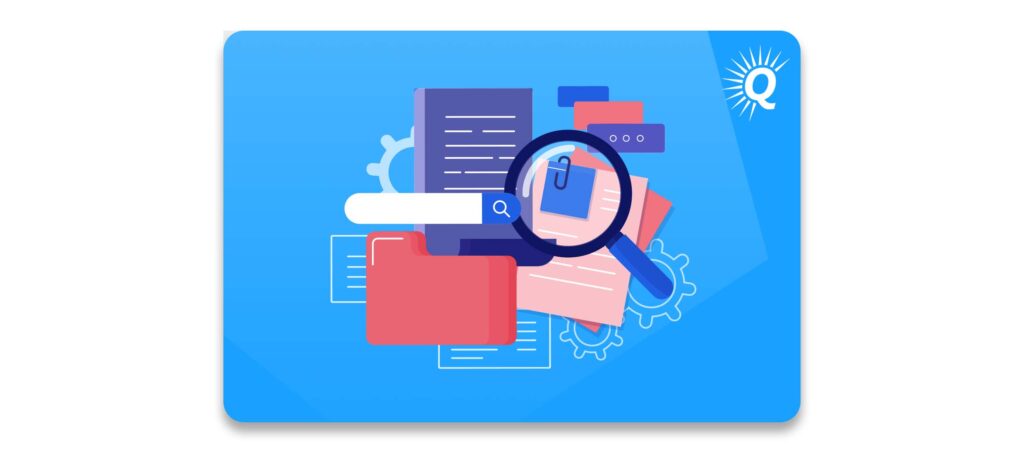

When you’re sitting down and looking at a specific SaaS business for sale, evaluate the potential for their specific niche or market segment. Look for a business that is well-positioned and has the potential to scale in the future.
Comb through their financials
Analyze the financial aspects of the SaaS business you’re considering. Review their revenue streams, pricing models, customer acquisition costs, cash flow, churn rates, and recurring revenue.
Assess their financial health, growth rate, and the lifetime value of their customers. You’re looking for a business with stable and predictable revenue streams.
Do due diligence right
Once you’ve made your official offer and you’re ready for due diligence, carve out some time to make sure that you spend that time well. Perform thorough due diligence on the business you’re interested in to make sure it is the business you think it is.
Practically, this will look like requesting financial statements, customer data, subscription metrics, and all other relevant information. Assess the quality of the technology, infrastructure, and codebase. Take time to evaluate customer satisfaction level and what it looks like for someone who has a customer support request to find answers and resolution.
Look for any potential legal issues and liabilities. At this stage of the process, you might be working with a third party for this step in the purchasing process. If not, it’s important to involve professionals like lawyers and accountants to assist with this important step.
Assess the customer base
Understand the SaaS business’s customer base and user experience. Evaluate customer retention rates and customer feedback. Spend time reading customer reviews.
When you’re learning more about the business, explore the user experience as if you were a customer thinking about purchasing a SaaS product. Is the interface easy to use? Identify all potential opportunities for improvement or expansion in the customer base.
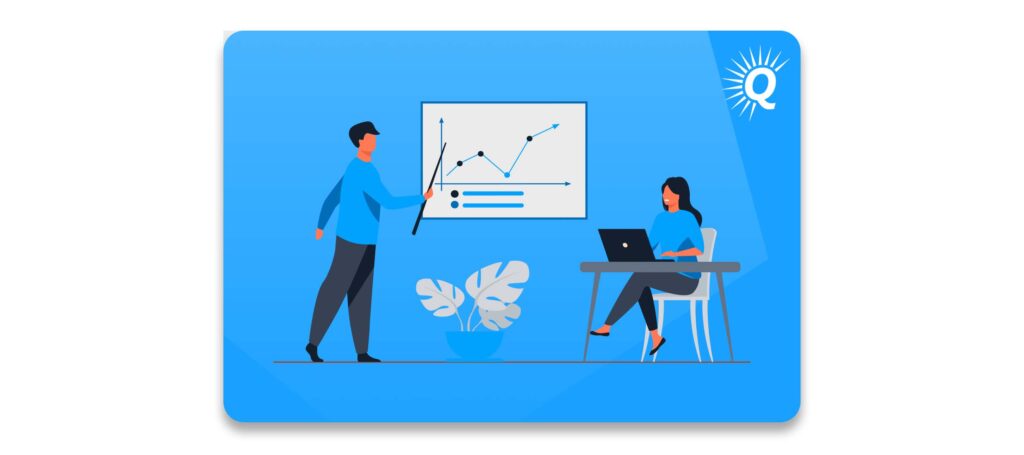

Understand the stability of SaaS technology
If you’re buying a SaaS business, spend time assessing the stability of the technology stack and its infrastructure. Is the technology scalable, reliable, and secure? Consider the underlying architecture and development methods. A the same time, look for any gaps in the current technology used.
Understand the maintenance and upgrade requirements currently in place. Identify any potential risks and limitations associated with the technology. If you’re wanting to launch new SaaS products, ask questions about the process of new product development currently in place.
Considering integration potential
If you’re purchasing a SaaS business and adding it to your portfolio of other businesses, determine how well the business will integrate into your existing infrastructure or operations. Evaluate the compatibility with your existing systems, tools, and processes. Assess any potential synergies or friction that may arise from this investment.
“If you’re purchasing a SaaS business and adding it to your portfolio of other businesses, determine how well the business will integrate into your existing infrastructure or operations.”
Don’t hesitate to call an (expert) friend
If at any point you think you’re in over your head, consult with professionals who specialize in SaaS business acquisitions. This includes business brokers, lawyers, and accountants. Their expertise can provide valuable insights and guidance throughout the decision-making process. At the same time, they will help ensure that you are not missing any important steps along the way.
Investing in a pre-established SaaS business is a big decision, and doing the research so you can be confident each step of the way is crucial. Take your time, gather as much information as possible, and consider all relevant factors as you make an informed decision. When you’re knowledgeable about each aspect of the business you want to purchase, you can make an informed decision that aligns with both your goals and resources.


What you’ll need in your toolbox to build a SaaS business
If building a SaaS business is piquing your interest, you need to spend time curating a technological toolbox full of tools to increase your chances of success. Granted, there are hundreds of tools available to you, but here are three of the most important ones:
- A robust cloud infrastructure
- Software development tools
- Customer Relationship Management (CRM) software
A cloud infrastructure that leaves you feeling like you’re on cloud nine
A reliable (and scalable!) cloud infrastructure is vital for scalability, reliability, and cost-effectiveness of your new SaaS business. Cloud platforms such as Amazon Web Services (AWS), Microsoft Azure, or Google Cloud provide essential resources like computing power, storage, and networking capabilities.
Utilizing tools like databases, cloud computing, and content delivery networks all enhance performance, security, and scalability of your SaaS application. This tool matters because you’re not just looking to create a business from scratch—you need to build something that is secure and has growth potential for the future.
Software development tools to help you create a great SaaS product
Having a robust set of software development tools is also crucial for building and maintaining your SaaS product. This includes integrated development environments, version control systems, project management tools, and collaboration platforms.
Software development tools matter because they facilitate efficient coding and collaboration amongst your team, tracking of project progress, and the ability to manage and prioritize tasks effectively.
Customer Relationship Management Software that connects you with customers
As a SaaS business, maintaining strong customer relationships is paramount. A CRM tool allows you to manage and nurture your customer base throughout their lifecycle. It helps you track interactions, manage leads, automate sales processes, and provide personalized support.
CRM software centralizes your customer data, which enables you to analyze customer behavior, identify trends, and make informed decisions about optimizing your marketing, sales, and customer support efforts. Popular CRM platforms to explore include Salesforce, HubSpot, and Zoho CRM.


While the right tools are crucial for building both a healthy SaaS product and revenue stream, it’s also important to remember that success depends on several factors. Having a well-defined product strategy, effective marketing and sales strategies, and a talented team are all factors to consider, too.
Depending on your specific business requirements, tools such as project management software, analytic platforms, and collaboration tools can also play a vital role in your SaaS journey.
Conclusion
The decision whether to buy or build a SaaS business depends on a variety of factors. Answering this question requires some serious time thinking about the decision from all angles. Acquiring an existing business can provide you immediate benefits. These include access to a customer base, revenue streams, and established infrastructure. This saves you time and effort. However, buying a business comes with its own set of challenges. This includes integration complexities and the need to conduct due diligence.
On the other hand, building a SaaS business from scratch offers its own advantages. These may include customization, flexibility, and the ability to shape a product exactly according to your vision. It allows for development, scalability, and lower costs out of the gate. But starting from scratch also requires significant investment in development, resources, and marketing.
The choice between buying and building will depend on your specific goals, resources, and your appetite for risk. Assessing the pros and cons of each option, along with a comprehensive analysis of market dynamics, will help you make an informed decision all while setting the foundation for a successful SaaS venture.
Thinking of Selling Your Business?
Get a free, individually-tailored valuation and business-readiness assessment. Sell when you're ready. Not a minute before.





